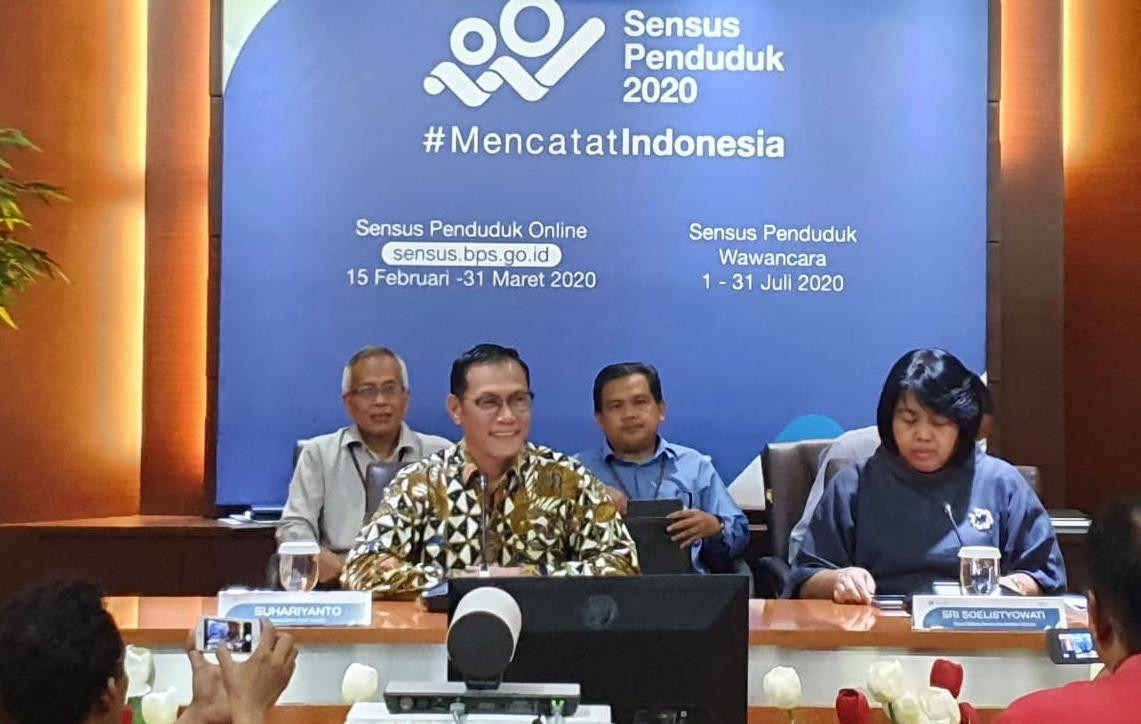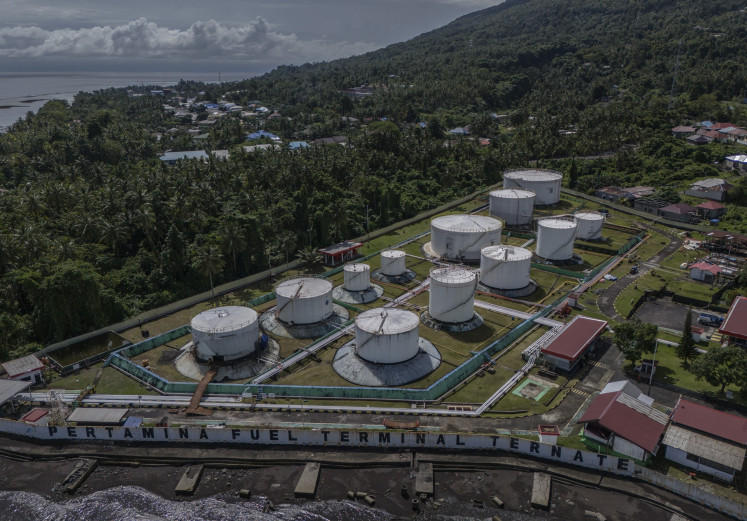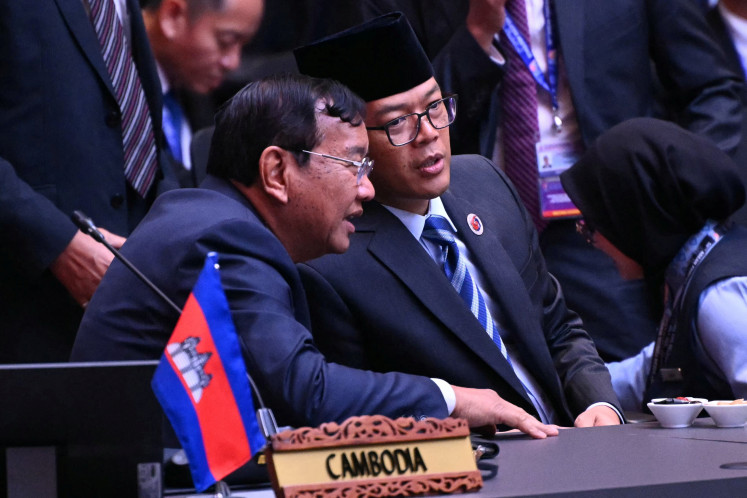Popular Reads
Top Results
Can't find what you're looking for?
View all search resultsPopular Reads
Top Results
Can't find what you're looking for?
View all search resultsIndonesia’s Q1 economic growth the weakest since 2001, slows more than expected
The economy grew 2.97 percent in the first quarter, the weakest since 2001, as household spending and investment growth slowed.
Change text size
Gift Premium Articles
to Anyone
I
ndonesia's economy grew 2.97 percent in the first quarter, the weakest since 2001, as household spending and investment growth slowed amid the coronavirus outbreak, which has started to wreak havoc on the economy, Statistics Indonesia (BPS) announced on Tuesday.
The first quarter figure had decreased from 5.07 percent recorded in the first three months last year.
“All of the economic sectors still grew in the first quarter despite slowdown in economic activity due to the COVID-19 pandemic,” BPS head Suhariyanto said on Tuesday. “This is far lower than many projections as it is not easy to make one with uncertainties surrounding the economy.”
The government expects the economy to grow between 4.5 percent and 4.7 percent in the first quarter, while Bank Indonesia (BI) has projected gross domestic product (GDP) to expand by 4.3 percent. Economists surveyed by Bloomberg also expect 4 percent growth in the quarter.
The GDP report reflected the early impact of widespread disruptions to the economy as the government called on people to implement physical distancing measures to contain the virus spread, forcing businesses and factories to shut down and consumers to stay home.
As many as four provinces and 22 regencies/cities nationwide have implemented large scale social restrictions (PSBB), including business hub Jakarta, to curb the spread of the virus.
Household spending, which accounts for more than half of GDP, grew sluggishly by 2.84 percent in the first quarter – far lower than 5.01 percent recorded over the same period in 2019 – led by a drop in vehicle sales and retail sales as people increased spending on health care.
Investment, meanwhile, grew 1.7 percent in the first quarter, a far cry from the 5.03 percent recorded over the same period last year.
However, despite the pandemic, exports grew 0.24 percent from last year’s contraction of 1.58 percent. Meanwhile, imports contracted 2.19 percent, slightly better than the 7.47 percent contraction in the corresponding period last year.
Government expenditure grew 3.74 percent in the first quarter, lower than the 5.22 percent recorded in the first quarter last year, as the government halted business trips and event spending as it refocused the budget on funding the fight against COVID-19.
The government has allocated Rp 436.1 trillion (US$28.9 billion), mainly for healthcare spending, social safety nets and tax incentives for almost all economic sectors, as well as incentives for small and medium firms as it works to cushion the pandemic impacts.
It expects a massive drop in economic activity in the second quarter as more regions impose PSBB.
Overall, the government expects the economy to grow 2.3 percent this year under the baseline scenario. However, under the worst-case scenario, the economy may shrink 0.4 percent.










